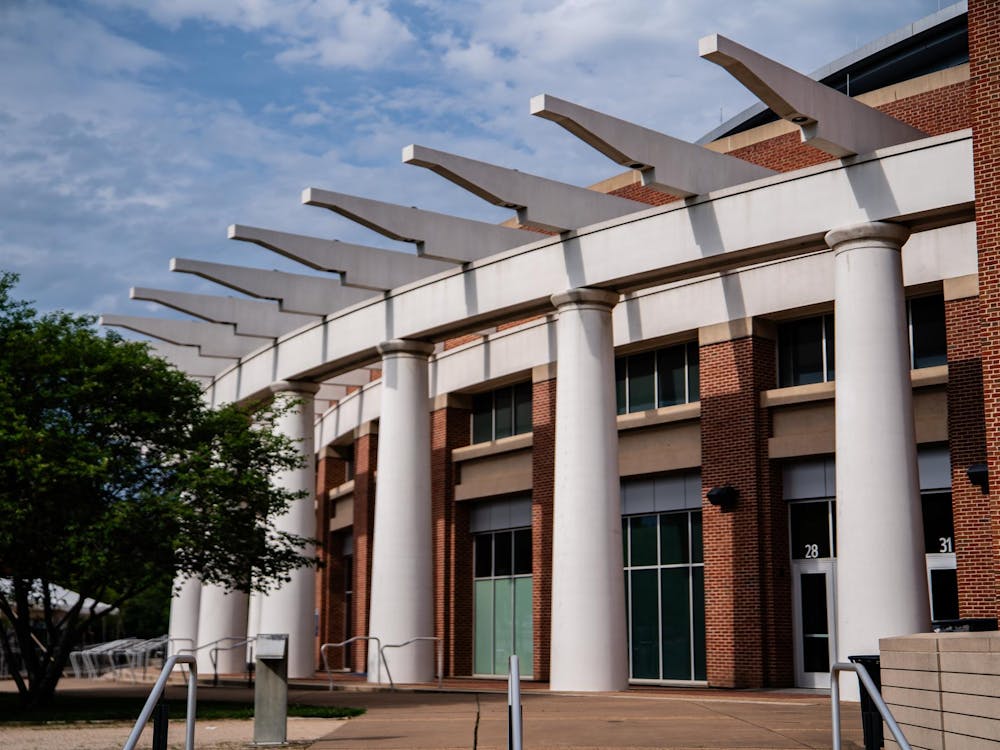As hospitals around New York and Washington prepared for burn victims and traumatized families, the University Hospital, in addition to accommodating the casualties of attacks on Sept. 11, prepared equipment necessary to treat possible biological warfare victims.
Though last week's attacks were not on the biological warfare front, no one can be certain that Tuesday was the last terrorist act against the United States. While the nation braced itself for possible further attacks, University Hospital officials said they must be prepared for anything, including victims of chemical and biological warfare.
"The very nature of preparedness is to look at all options," said the hospital's chair fo emergency management Marge Sidebottom. The hospital is "trying to be prepared for any event and [biological warfare] is one of the things we have to consider."
But is biological warfare a legitimate threat against the United States? And is it feasible for the U.S. to use biological weaponry to retaliate against terrorists?
Assoc. Government and Foreign Affairs Prof. Dale Copeland, who studiesmilitary force and security issues, does not think so. He said America's use of biological attacks is "extremely unlikely just because of the moral horror."
Others agreed, but added they were concerned about the widespread implications of biological artillery.
Using it would be "counterproductive and destroy the support we have in the world," said Law Prof. Robert Turner.
Copeland said biological warfare is "extremely indiscriminant" - the viruses and bacterium do not distinguish between its victims. As a result, it easily "spreads out and kills lots of innocent people."
Despite biological warfare's seemingly distant threat, its potential for utter devastation cannot be easily ignored. Chris Holstege, medical director of toxicology at the department of emergency medicine and director of the Blue Ridge Poison Center, said a state of preparedness and education would be vital should an attack actually take place.
The agent Anthrax is the most potent and preferred form of biological agent. Anthrax, the bacterium Bacillus anthracis, is 100,000 times deadlier than the deadliest chemical warfare agent, according to www.defenselink.mil, the official Web site of the United States Department of Defense. Its victims die when toxins produced by the bacterium destroy their chest cavity.
Anthrax can be stored for long periods of time in the form of a powder and can be launched to any location via aerial bombs, artillery shells, long-range missiles, agricultural sprayers and spray tanks carried by aircraft. Anthrax is contagious, can be spread through air or water and leaves no trace.
The potential for widespread damage from Anthrax keeps national security officials alert for signs of an attack. However, a defense against Anthrax is, at best, exceedingly difficult.
"The biggest component [of defending against biological warfare] is identifying it," Holstege said. "The warning signs and symptoms are so vague in the early stages. Anthrax initially causes a mild cough, slight headaches, much like the flu."
But by the time someone realizes he has been infected with Anthrax, his "chances of dying are pretty much guaranteed," Holstege said.
According to the Department of Defense, the threat of an Anthrax attack against American servicemen was so real in 1991 during the Gulf War that the U.S. military's 150,000 personnel serving in the area were vaccinated against Anthrax. The general public cannot get the vaccination, though, because of cost and availability.
Biological and chemical warfare is nothing new to armed forces. Roman armies used dead animals to pollute the drinking water of enemy forces. This tactic not only depleted their opposition's numbers without risking their lives, but also severely damaged morale.
According to Copeland, no nation has used biological warfare since World War II, when Japanese armies sprayed bubonic plague over parts of China and released thousands of rats infected with various bacteria.
Just studying biological warfare can tip over the first in a long line of dominoes. International Relations Prof. Kenneth Thompson said merely possessing biological weapons gives any nation an advantage. But its ownership can be a double-edged sword.
"The arms race is like a spiral that continues to go upwards," Thompson said. "We make progress and nations have made progress in controlling one weapon, and some new ones come into play."
Despite the dangers that are implied by exploring biological warfare, all agree that it never hurts to be prepared.






